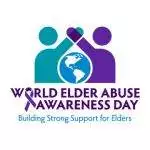As the baby-boomer generation enters retirement, seniors are more vulnerable to financial abuse. Planning for elder care is crucial for all seniors and their family members. Financial abuse can take many forms, including exploitation by unscrupulous caregivers or con artists who target older adults’ vulnerabilities.
Here we provide information on recognizing signs of possible elder financial abuse and what steps you should take if you suspect a loved one is being victimized. We also include tips from experts on how to protect yourself against these scams and prevent them from happening in the first place.
Elder Financial Abuse Defined
Here are some of the most common types of elder financial abuse:
• Identity theft, in which someone uses another individual’s personal information (e.g., Social Security number, bank account information, credit card number) to take that person’s money or property;
• Financial exploitation, which includes the misuse or unauthorized taking of an elder’s money, possessions, or estate;
• Fraudulent schemes, such as investment scams, Ponzi schemes, and pyramid schemes;
• Telemarketing and mail fraud;
• Pressure to sign over assets or make large financial gifts to family members, friends, or professionals;
• Deceptive financial practices, such as coercing the elder to withdraw large sums of money for others or compelling them to make unnecessary purchases.
RELATED ARTICLE: Seniors: How to Get a Good Night’s Sleep?
What Can You Do?
The Federal Trade Commission recommends these steps you can take if you believe a loved one is being victimized:
• Talk with your loved one about your concerns.
• Talk with other family members and close friends to see if they have noticed any unusual or suspicious behavior.
• Gather information about the person’s finances, such as bank statements, credit card bills, and investment statements.
• Review the individual’s medications and medical history for possible signs of cognitive decline that could make them more susceptible to financial abuse.
• Contact the local police or Adult Protective Services in your area.
• File a report with the FTC at https://reportfraud.ftc.gov/.
RELATED ARTICLE: Medication Management: Tips for Managing Multiple Medications
Tips to Protect Yourself
In addition to being proactive about watching for signs of elder financial abuse, you can take steps to prevent the misuse from happening in the first place.
• If you are sharing your bank or credit card accounts with another person, put a stop to any new charges after you’ve closed them.
• Don’t leave large amounts of money in cash in the house; instead, keep it in a bank account or invest it.
• Don’t agree to any investment or financial schemes without getting a second opinion from a trusted friend or family member.
• Keep your passwords and other sensitive information confidential.
• When you are contacted by someone claiming to be from a financial institution, hang up and call the number on your account statement to make sure it is legitimate.
Protecting yourself and your loved ones from elder financial abuse can be very challenging, especially if you suspect that a family member or friend you know may be the victim of such crimes. If you believe that scammers are victimizing an older adult, immediately report it to the authorities at the Federal Trade Commission or Lucas County’s Adult Protective Services.
Let us know how we can help by contacting Arista Home Care Solutions.

 Arista Wins Top Workplaces Award
Arista Wins Top Workplaces Award


